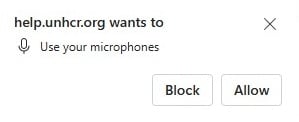As you can see above, one of the duties of the Pedagogical Assistance Services, is the expert committee activities. The professional diagnostical committee of the county level pedagogical assistance service intstitution shall draw up an expert opinion on the basis of their complex psychological, pedagogical-special educational, and medical examination, and shall make suggestions, based on the results of the examinations, as to the education of children/students with special education needs or facing difficulties in integration, learning or behaviour within the framework of special treatment, as well as the method, form and place of education.
If the child/student has “conduct, integration or learning difficulty” or “special education needs”, the professional diagnostical committee shall conduct an official review procedure one academic year later. After this first review, the review procedure is repeated in every second year until the student reaches the age of ten, and then in every third year until the age of sixteen. The parent may initiate the review procedure at any time.
Shortly, the expert committee of the relevant Pedagogical Assistance Service will assess the child. Based on the result of this official expert opinion, the child might receive special needs status, that is either SNI or BTMN (please see the explanations under the next question).
This creates an obligation for the educational institution of the child to provide the necessary development sessions for the child. It also creates an obligation for the parents to cooperate and take the child to the developmental sessions.
Parents can select the educational institution that provides appropriate education for students with special educational needs on the basis of the relevant committee’s expert opinion, in consideration of the needs and the possibilities of parents and children. The professional diagnostical committee informs the parent based on the list of kindergartens and schools in which the child with special educational needs can take part in early development and care, kindergarten education and fulfil compulsory education. The public educational institution is chosen by the parent from the institutions recommended by the professional diagnostical committee. After it, the Pedagogical Assistance Service assign the kindergarten or school for the child based on the best interest of the child. If the parent disagrees with this decision, the parent can appeal to the education district.


